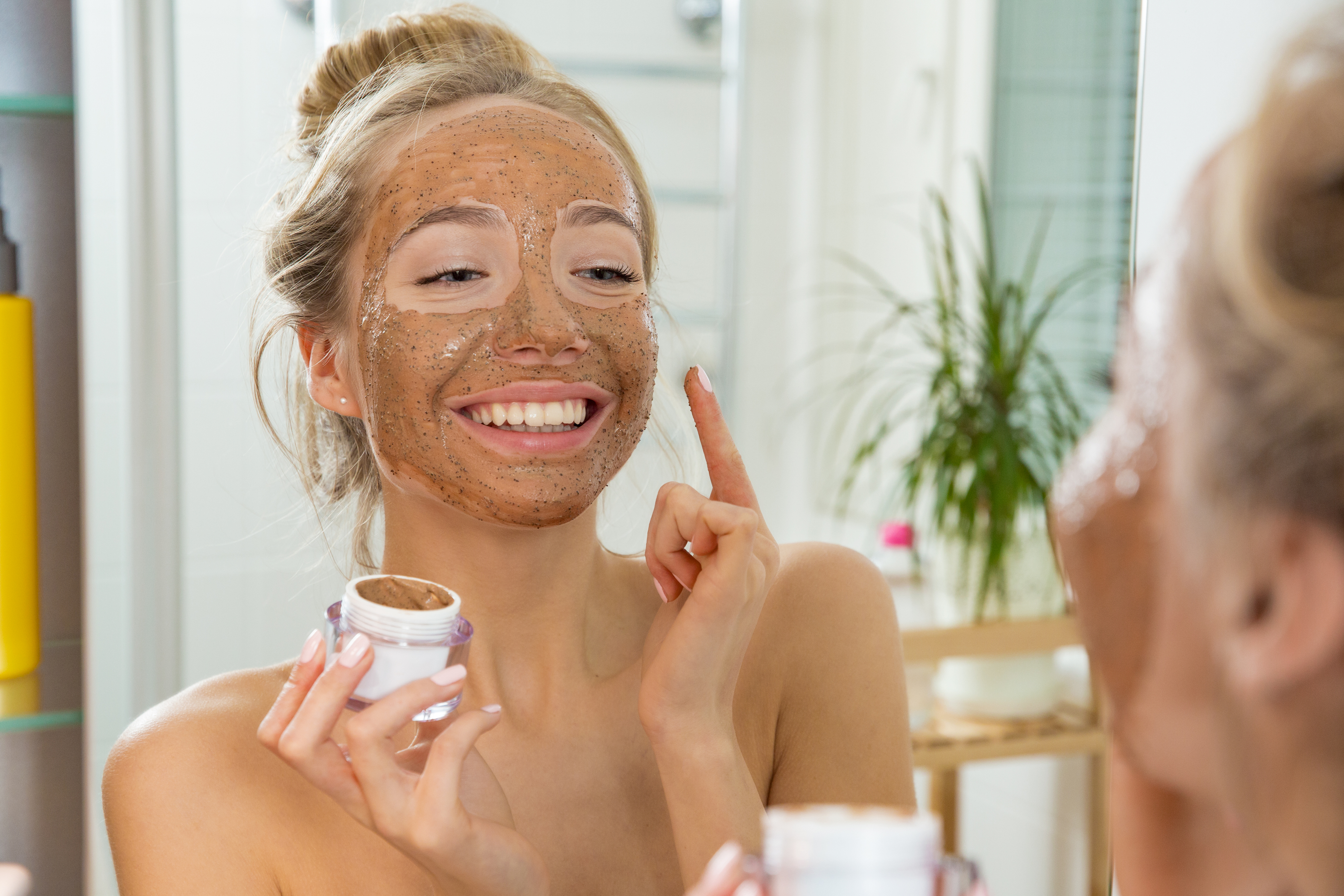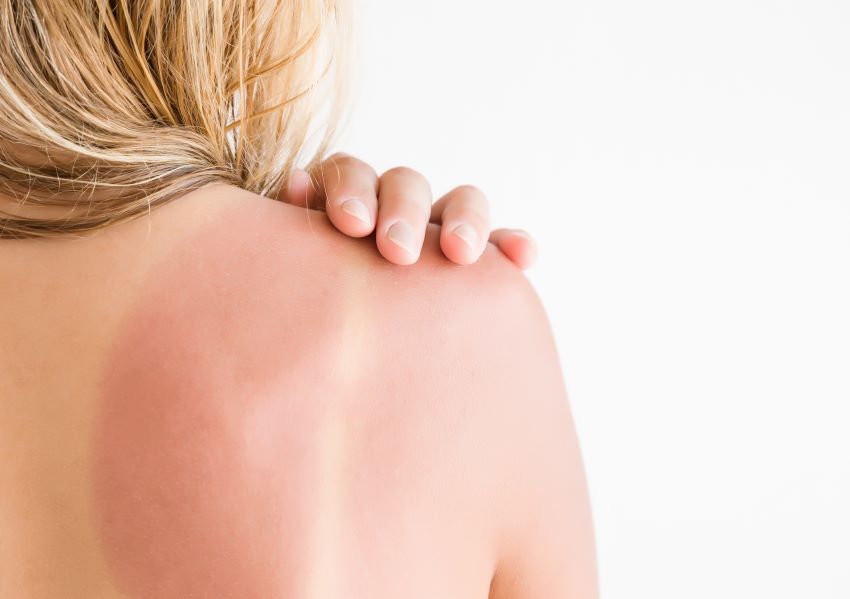Teenage skin can be super sensitive and need some ultra care, since puberty hits right around that age. Teenage skin…

 Healthy Skin
Healthy Skin
Benefits of Sun Exposure: How Much Sunlight is Needed?
Sunlight Benefits for Health and Skin: How Much Sun Exposure Do I Need?
While most of us are aware that sunlight can be damaging to our skin, many people do not know that moderate amounts of sunlight are beneficial to your overall health. Over the past hundred years or so, scientists have come to recognize that the ultraviolet radiation in sunlight has both beneficial and damaging effects on human health. However, it seems as though the damaging effects of sunlight have moved into the spotlight, and the benefits are lesser known amongst the general population. So, what are the benefits of sunlight exposure, and what are the risks of not getting enough?
Benefits of Sun Exposure
Cancer Prevention
Typically, when it comes to cancer and the sun, people think about skin cancer and protecting their skin from the sun to avoid this cancer. However, many scientists and doctors worry that the emphasis on preventing skin cancer is keeping people in the dark that sun exposure can be beneficial to preventing other, more deadly types of cancer including lung, colon, and breast cancers. Cancer-related death rates decline as you move toward lower latitudes, where the sun rays are stronger and provide people with more Vitamin D. Therefore, sunlight is good for our health.
Richard Vieth, a professor at the University of Toronto explains that “As you head from north to south, you may find perhaps two or three extra deaths [per hundred thousand people] from skin cancer,” says Vieth. “At the same time, though, you’ll find thirty or forty fewer deaths for the other major cancers. So when you estimate the number of deaths likely to be attributable to UV light or vitamin D, it does not appear to be the best policy to advise people to simply keep out of the sun just to prevent skin cancer.”
Skin Conditions
Sun exposure can also help to treat skin conditions including psoriasis, eczema, jaundice, and acne. Sunlight can relieve symptoms of eczema by triggering the release of a compound in the skin that works to get rid of the inflammation that causes eczema. For serious conditions, seek medical advice from your nearest pharmacy for eczema. Sun exposure also provides your body with Vitamin D which works to improve your immune functions in your skin. UVB light rays can treat psoriasis symptoms as they work to slow the rapid rate of skin growth and shedding that create psoriasis patches. If you’re looking for further treatments, go to your nearest psoriasis pharmacy.
Serotonin
Serotonin is a hormone that is primarily responsible for mood-boosting and helps to keep a person feeling calm and focused. When a person does not get enough sun exposure, serotonin levels will decrease. This will raise a person’s risk of major depression with seasonal patterns, a type of depression triggered by the changing of seasons.
MS
There is also evidence that vitamin D insufficiency is related to higher rates of multiple sclerosis. Similarly, cancer rates populations at higher latitudes (climates with less sun and colder temperatures) have higher rates of MS. One study conducted at The Australian National University found that living at a latitude above 37° increased the risk of developing MS throughout life by over 100%.
What Happens When People Do Not Get Enough Vitamin D?
Rickets
Over time, humans migrated from hot, sunny climates in Africa to colder and more cloudy climates at a higher latitude in Europe. This move forced humans to wear more clothing and cover up from the little sun that hit them to keep warm. During this time, children who were living in industrialized cities of northern Europe developed rickets. By the 1800s, around 90% of children living in cities of Europe and North America had some manifestations of the disease. Rickets is a disease that causes the weakening and softening of bones in children that can result in bowlegs, delayed growth, and weakness in the spine, legs, and hips.
Diabetes
When it comes to type 1 diabetes, there are higher rates of this disease in higher latitudes. Studies have proven that people who get sufficient levels of vitamin D in early life are at a lower risk of developing type 1 diabetes later in life. One specific study conducted on children showed an 80% reduced risk of developing type 1 diabetes when they received the correct dose of vitamin D, compared to children who were vitamin D deficient and ended up having a fourfold increased risk.
Lastly, studies on patients with low levels of vitamin D have shown that they are at a higher risk of developing type 2 diabetes as well. Insufficient levels of vitamin D are correlated with blood glucose concentrations and insulin resistance. When patients are exposed to proper levels of vitamin D, the body is better able to respond on the cell level to insulin, countering type 2 diabetes. Vitamin D also helps to keep the beta cells in the pancreas healthy which are the cells that produce insulin.
The Right Balance
Overall, it is clear that humans need proper amounts of vitamin D in their bodies to keep healthy. Experts on this subject now recommend that people get modest amounts of sun exposure to prevent diseases that are more likely to develop if people do not receive the correct amount of vitamin D needed for their bodies. Dermatologists suggest that everyone should be wearing sunscreen to minimize the risk of Actinic Keratosis or skin cancer, but still to get out in the sun for small amounts of time to also prevent other internal cancer. 12-15 minutes for lighter-skinned people and 15-30 minutes for dark-skinned individuals in the midday sun is all you need to get the proper amount of vitamin D in your system.
Related – How to Treat Your Skin After Damage from the Sun
At Apotheco Pharmacy, we treat many dermatology conditions. Get in touch with our dermatology pharmacy today if you need treatment for a skin condition.
Sources
- Benefits of moderate sun exposure - Harvard Health Publishing
- Benefits of Sunlight: A Bright Spot for Human Health - NCBI
This blog is based on research and/or other scientific articles and is written by our experienced Chief Strategy Officer and Pharmacist, Ronak Desai. This blog is fact checked by our educated Pharmacist in Charge, Darshan Patel, who additionally runs our Apotheco Manhattan location.
Here at Apotheco Pharmacy Group, our goal is to provide the most up to date and accurate information on health and dermatology related topics. We do this to ensure our readers can make informed decisions based on factual content. All blogs undergo an extensive review process before posted.
This blog contains trusted sources. All sources are listed at the bottom of this article with hyperlinks that take you directly to the source.






